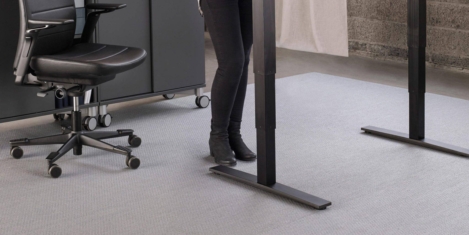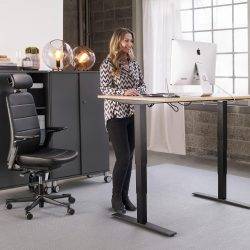October 12, 2017
Working conditions and office design shown to impact on employee performance

New evidence of a strong correlation between productivity, creativity and even profitability with employee working conditions, such as: light, air, noise, health, culture, design, movement and the quality of furniture have been established in a new report. The syndicated research project, Wellness Together, carried out by Sapio Research, of 1000 UK based office workers and 50 Facilities Management experts, suggests a strong link between people feeling catered and cared for by their workplace/employers and how this impacts business performance. Wellness at work is a dominant theme in any discussion about the workplace. But this is not just a discussion about happiness, it is about creating cultures and environments that are conducive to commercial success. The study identifies that in order to achieve true ‘Wellness’ attention to every single component that can impact mental and physical health needs to be considered, from building structures and company cultures through to the physical furniture and fittings that employees require to work efficiently and effectively.


































